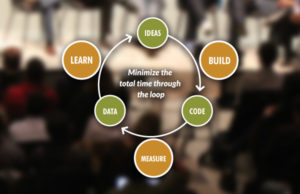Failing sucks. And admitting to failing? Often even harder.
It’s something a lot of non-profits struggle with — either out of a desire not to hurt feelings, because of fuzzy goals that allow you to claim success no matter what, or just because no one likes to admit they were wrong.
But the thing is — failing is crucial. We all recognize that even if we’re winning individual battles, we need to win bigger and faster to actually create the world we want to see.
That means we need to try new and different things — and if you’re trying new things, expanding your boundaries, and taking risks, you’re gonna fail. But that’s ok!
Last week, Madeline Stanionis, the creative director at M+R Strategic Services, and I gave a talk on exactly this topic, delving into campaigns that had failed with organizations of all sizes (though mostly based in the US) like CARE, Mozilla, the San Francisco Food Bank, the Children’s National Medical Center, the Clinton Foundation, HRC, and The Nation.
And we explored how to foster an organizational culture that’s accepting of failure.
Check out the slides here:
In case you can’t see the deck, or just want to skip to the end, here are our four keys to fostering an internal culture accepting of failure:
- Don’t pretend to have all the answers when pitching your idea.
Acknowledge that things might not go as planned — and plan accordingly. - Try lots of things!
By having lot of successes to point to, you can more easily make room for the failures; if you only do one campaign per quarter and it tanks, though, you’ll be left scrambling. - Establish metrics and benchmarks for failure.
For instance, If you do a subject line test, figure out what result you consider to be the main objective, and how well it needs to do to be worth the unsubscribes or list fatigue the email could cause. - Be open and transparent (internally, at least).
A lot of us want to crawl in the corner and hide when something tanks, but by being open about how things are doing all of the time, you can foster an acceptance that occasional failure is just the cost of doing things.
Madeline Stanionis contributed to this write-up.




